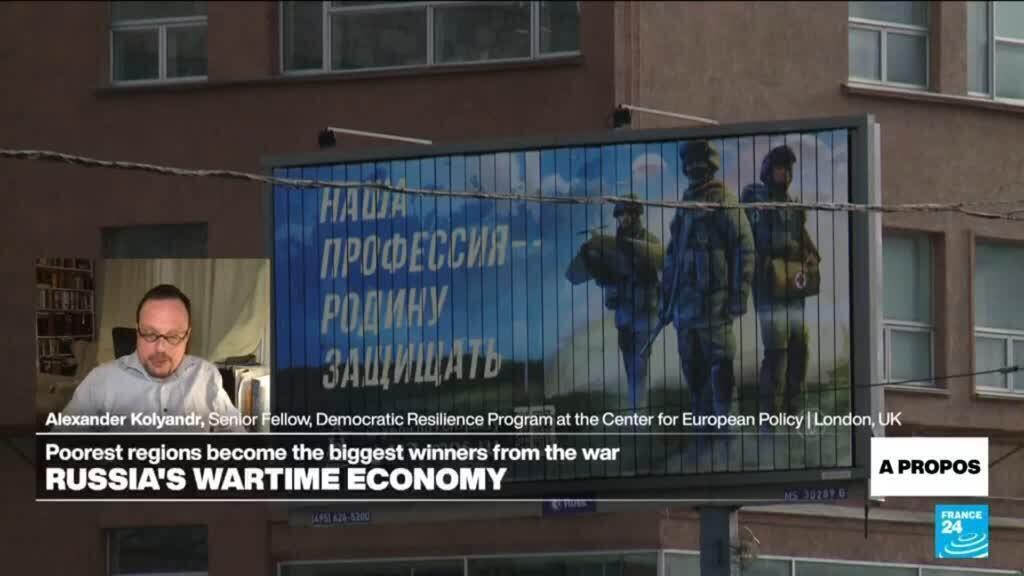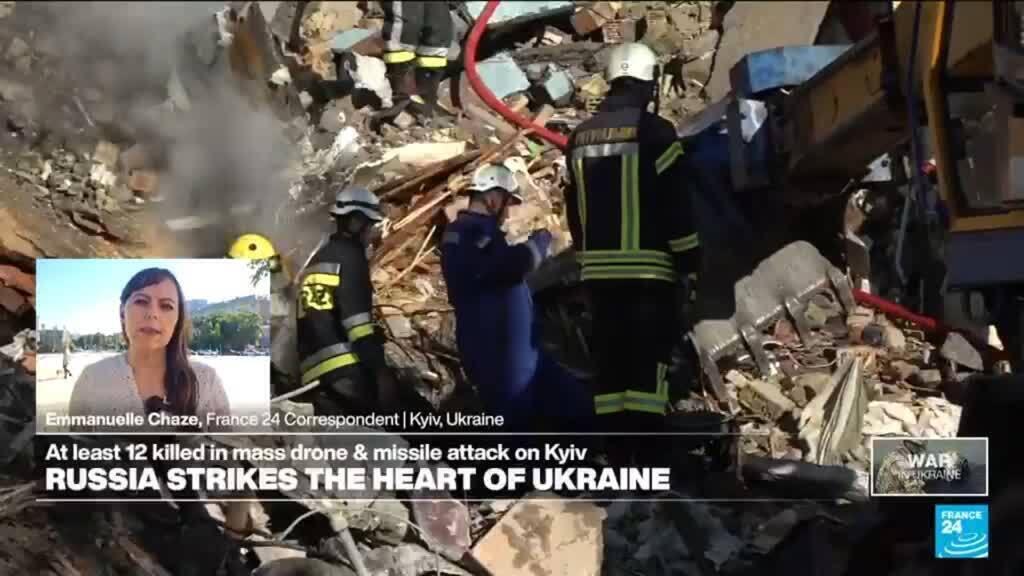Russia Lowers Economic Growth Forecast for 2025 Amid High Interest Rates and Wartime Spending
Recent reports indicate that Russia has revised its economic growth forecast for 2025, attributing the change to a combination of high-interest rates and continued expenditures related to the ongoing conflict in Ukraine. The situation presents a challenging landscape for the Russian economy, showing signs of strain as financial pressures mount and inflation remains elevated.
In an interview on FRANCE 24, Alexander Kolyandr, a Senior Fellow with the Democratic Resilience Programme at the Centre for European Policy Analysis, emphasized that the financial stimulus provided through wartime spending "cannot last forever." Kolyandr's remarks reflect a growing sentiment among economists and analysts that the immediate effects of war-related expenditure are beginning to wear thin. As funds are funneled into military efforts, the broader economic landscape is affected, leading to stagnation in wages and persistent inflationary pressures.
The forecasted economic slowdown in 2025 is positioned against a backdrop of high interest rates, which further complicates the financial dynamics within the country. With the Russian government prioritizing military spending, other sectors may not receive the necessary investment to foster growth. The implications of such a strategy could lead to a decrease in consumer confidence and spending power, ultimately hindering the economy's recovery prospects.
Kolyandr pointed out that the current economic "party" fueled by intensive spending on the war is "almost over," suggesting that as financial resources deplete and the realities of a prolonged conflict set in, the country may find itself at a critical juncture. The expectation that such a stimulus can be sustained indefinitely appears increasingly unrealistic, particularly as everyday citizens face the dual pressures of stagnant income and rising prices.
In light of these developments, the Russian economy is at a potential tipping point. The combination of reduced military funding capability, coupled with the structural challenges of high interest rates and stagnant wages, poses significant risks to future economic growth. The situation calls into question not only the viability of the current economic strategies but also the overall resilience of the country's financial framework in the face of sustained conflict.
The ripple effects of these economic decisions are expected to span various sectors, potentially affecting everything from consumer goods to public services. This scenario emphasizes the delicate balance that the Russian government must navigate as it seeks to address the demands of warfare while also striving for economic stability. As international observers closely monitor these developments, the path ahead for Russia will require careful planning and management to mitigate the risks associated with stagnant growth and high inflation.
Overall, the revised 2025 economic growth forecast is a clear indicator that the effects of the ongoing conflict in Ukraine are far-reaching, impacting not just the immediate military objectives but also the long-term economic viability of Russia itself. As the cost of war continues to rise, the necessity for a strategic reassessment of economic policies seems increasingly pressing.












